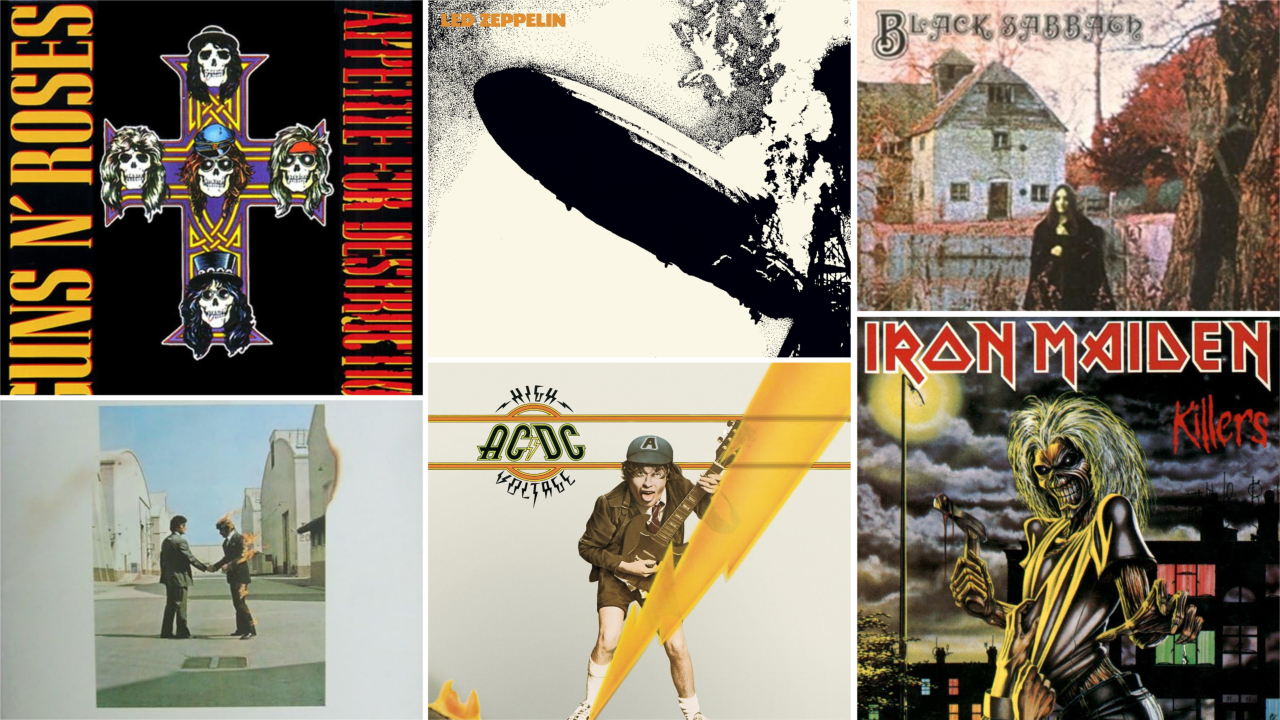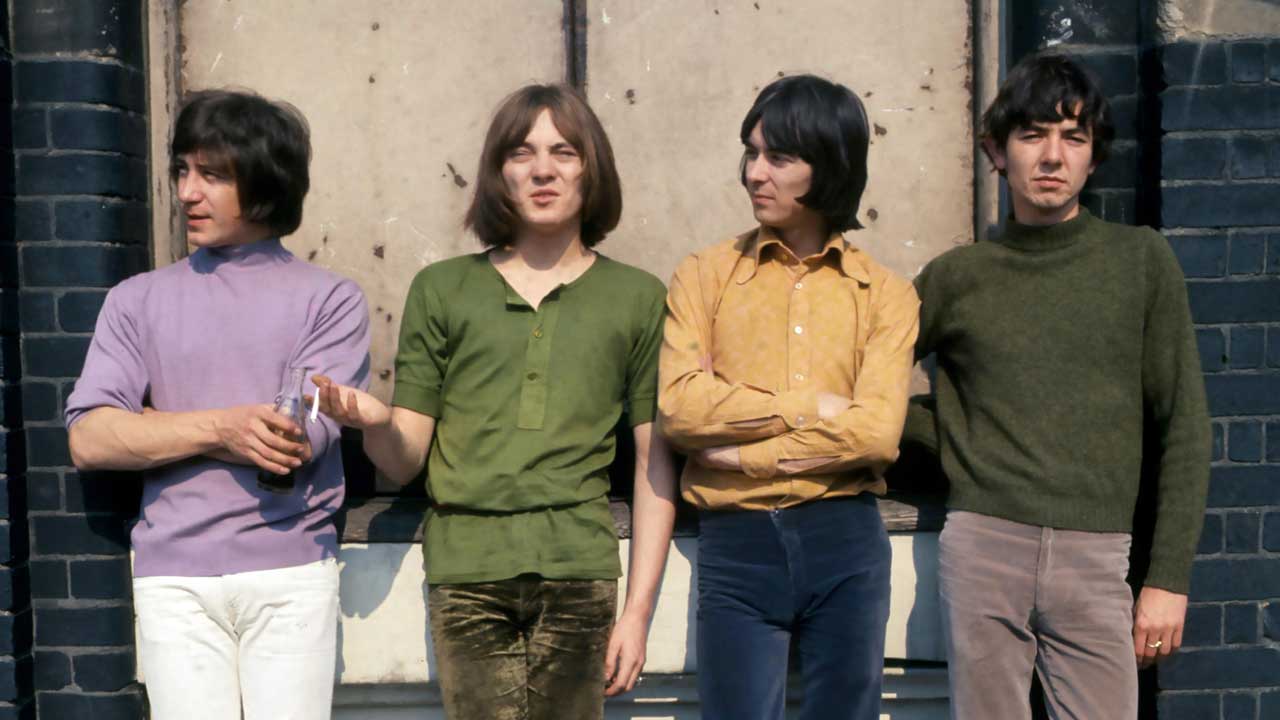“Led Zeppelin write weak, unimaginative songs”: 10 original reviews of classic albums that got it completely wrong
Everyone from Led Zeppelin and Black Sabbath to Iron Maiden and Guns N’ Roses had their haters

Select the newsletters you’d like to receive. Then, add your email to sign up.
You are now subscribed
Your newsletter sign-up was successful
Want to add more newsletters?
Sometimes you know you’re listening to a life-changing album the first time you hear it. Led Zeppelin’s debut, Black Sabbath’s first record, Guns N’ Roses’ Appetite For Destruction, Firkin Well Live by Dumpy’s Rusty Nuts - stone cold classics, one and all.
Except not everybody agrees. The history of music journalism is littered with stinking reviews of albums that would go on to be held up as iconic records. Of course, there are several reasons for this. Taste is subjective, for one. And sometimes there may be personal axes to grind. Who knows, the journalist might have got out of bed the wrong side that morning (that’s obviously not true - music journalists never get up in the morning).
But the fact remains that there have been some stupendously baffling reviews of several of the biggest and most influential albums in history.. Here are 11 vintage reviews that got it completely wrong.

Led Zeppelin – Led Zeppelin (1969)
After starting by comparing future rock legends Led Zeppelin unfavourably with fellow Brits the Jeff Beck Group in his original review in Rolling Stone magazine, reviewer John Mendelsohn did concede that Jimmy Page was an “extraordinarily proficient blues guitarist”. He then continued: “Unfortunately, he is also a very limited producer and a writer of weak, unimaginative songs, and the Zeppelin album suffers from his having both produced it and written most of it (alone or in combination with his accomplices in the group).”
The Stooges – The Stooges (1969)
Punk progenitors The Stooges were way ahead of their time, but not everyone was on the curve with them. “Had I not had the unpleasant experience of hearing the MC5's Kick Out The Jams several months ago, I could say The Stooges was the worst album of the year,” wrote John Mendelsohn (see Led Zeppelin, above) in the Los Angeles Times. “It's unquestionably the second worst, featuring as it does seven whiny, adolescently repulsive and barely distinguishable street-punk anthems and hypnotically boring 10-minute chant, We Will Fall.”
Black Sabbath – Black Sabbath (1970)
Rolling Stone also dropped a clanger on the album that birthed heavy metal, with revered music critic Lester Bangs labelling Black Sabbath “unskilled labourers” with “inane lyrics” and claiming that Tony Iommi’s iconic guitar playing “dribbles wooden Claptonisms”. He added that the “whole album is a shuck” filled with “stiff recitations of Cream clichés that sound like the musicians learned them out of a book, grinding on and on with dogged persistence”.
Pink Floyd – Wish You Were Here (1975)
It might have followed Pink Floyd’s gazillion-selling prog landmark The Dark Side Of The Moon but Wish You Were Here was no slouch with that classic title-track and the epic multi-part Syd Barrett tribute Shine On You Crazy Diamond. That wasn’t enough for UK weekly Melody Maker, however, who bloviated: “From whichever direction one approaches Wish You Were Here, it still sounds unconvincing in its ponderous sincerity and displays a critical lack of imagination in all departments.”
Sign up below to get the latest from Classic Rock, plus exclusive special offers, direct to your inbox!
AC/DC – High Voltage (1976)
Rolling Stone might seem over-represented here, but it was one of the most influential music publications in the world – albeit one that has run more than its share of howlers. “Those concerned with the future of hard rock may take solace in knowing that with the release of the first US album by these Australian gross-out champions, the genre has unquestionably hit its all-time low,” they declared of AC/DC’s debut album.
Queen – Jazz (Rolling Stone, 1978)
There’s criticism and then there’s calling a band fascists. Rolling Stone reviewer Dave Marsh warmed up his review of Queen’s seventh album by saying that the band “hasn’t the imagination” to play rock‘n’roll, dismissing Jazz as “the same dull pastiche that's dominated all of this British supergroup's work” and describing Freddie Mercury's vocals as “throat-scratching”. He then went on to say call We Will Rock You – which isn’t even on this album – “a marching order: you will not rock us, we will rock you”, before delivering the damning statement: “Queen may be the first truly fascist rock band. The whole thing makes me wonder why anyone would indulge these creeps and their polluting ideas.” Not a fan, then?
Iron Maiden – Killers (Sounds, 1981)
Sandwiched between their scene-establishing debut and breakthrough album The Number Of The Beast, Killers might not be Iron Maiden’s most iconic album but a “well dodgy” 1-star “failure” filled with “tiddly-tiddly-tiddly guitar”? Weekly music paper Sounds had championed the band previously but the British music press was notorious for build-em-up-knock-em-down backlashes. In biography Run To The Hills the band also suggested that the fact vocalist Paul Di’Anno had recently dumped the reviewer might have had something to do with it.
Guns N’ Roses – Appetite For Destruction (1987)
Even one of rock’s all-time greatest albums had its haters. Writing in Metal Hammer in 1987, current Classic Rock scribe Dave Ling dismissed Guns N’ Roses’ debut album as “extremely predictable… two great tracks and some decent ideas are not a great record”, comparing them unfavourably to Aerosmith’s Rocks and Draw The Line. For the record, we checked with Mr Ling to see if he stood by what he says. “Hideously over-rated,” he says.
Pearl Jam – Ten (1991)
When Pearl Jam appeared on the grunge scene their most prominent critic was one Kurt Cobain, who questioned their authenticity. A number of reviewers also panned PJ’s debut – including Entertainment Weekly. Despite a creditable B- rating they said that “you’ve heard it all before on records by fellow Northwestern rockers like Soundgarden, Alice in Chains and the defunct Mother Love Bone”, adding that it “only goes to show that just about anything can be harnessed and packaged”.
Nine Inch Nails – The Downward Spiral (NME, 1994)
With the domestic scene dominated by Britpop’s perky anthems, NME unsurprisingly hated the industrialised angst Nine Inch Nails were crafting across the pond. Awarding depressive masterpiece The Downward Spiral 4/10 and announcing that “Reznor still only has two speeds – menacing croon or demented howl”. Half a decade later they awarded follow-up The Fragile 2.5/5. At least they were nothing if not consistent.
Paul Travers has spent the best part of three decades writing about punk rock, heavy metal, and every associated sub-genre for the UK's biggest rock magazines, including Kerrang! and Metal Hammer.
